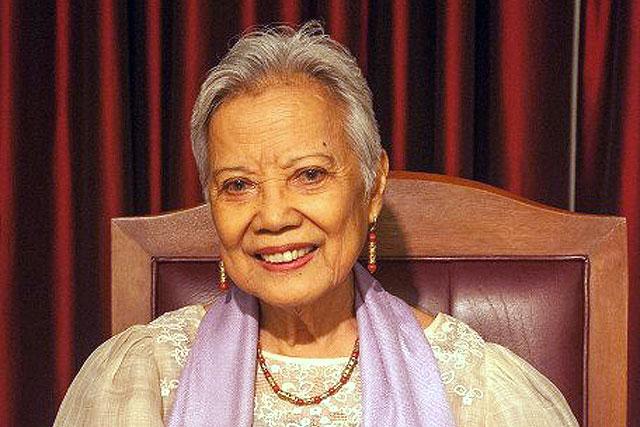Letty Shahani’s singular act of sweetness

On my way out of an event at the Asian Institute of Management last November, former Senator Leticia Ramos-Shahani crossed my path. Instead of the perfunctory nod or hello, she stopped and told me, "I want you to know that my father thought very highly of your lolo. He used to say that Rod Severino was very useful to him in the foreign office."
It was a startling, heart-warming reminder of my beloved lolo, with whom I lived as a teen-ager. Today, as we absorb news of Letty Shahani's death, I recall that moment as a singular act of sweetness. She could have just walked by; instead, my last memory of her was our fond reconnection as fellow members of diplomatic families, even if mine was nowhere near as prominent as hers.
It reminded me that long before she became the younger sister of a president, she was the daughter of one of the country's foremost diplomats, the former Foreign Secretary Narciso Ramos, an original signatory of ASEAN's founding document and a model of the urbane, lettered diplomat, which his daughter would become, and which my lolo was as well, having served as a devoted but little known foreign service officer. His son – my father, also called Rod Severino – would follow in my lolo’s footsteps in the 1960s.

Shahani’s long career in public service arguably, and maybe literally, covered more ground than just about any other Filipino in history, taking her to head Embassies in several countries as well as to United Nations leadership positions.
And all that was before a distinguished eleven years in the Senate where she was known for legislation to strengthen protections for women. But what I remember her most for in her time as a senator was a quixotic effort to formally organize a "moral recovery" program, after she initiated a serious study "to inquire into the strengths and weaknesses of the Filipino character with a view to solve social ills and strengthen the nation’s moral fiber."
Cynics might have smirked, but after the depravity of the Marcos era, such an endeavor was probably more urgent than any legislation.
Long after she retired, she still had a public life in my view, and that was her frequent appearances at Legaspi Sunday Market in Makati where she sat in the heat for hours and, to anyone who cared to listen, extolled the virtues of the carabao milk for sale from her Pangasinan farm. She brightened even rainy days with her sunny demeanor.
That brief encounter at AIM last November when she recalled my lolo defined to me her warm and gracious character.
But it was at the AIM forum an hour earlier where she demonstrated her sterling qualities as an intellectual and patriot. She argued forcefully but elegantly for the government to use the international tribunal's favorable decision on the South China Sea to pursue the national interest. She was plainly exasperated with the government's concessions to China.
What struck me and perhaps others in the audience was not her principled position, but the fact that she could expound so lucidly and firmly for someone who was supposed to be debilitated by an advanced stage of cancer.
As ill as she was, she found the strength to tell us to do the right thing.

Need a wellness break? Sign up for The Boost!
Stay up-to-date with the latest health and wellness reads.
Please enter a valid email address
Your email is safe with us





